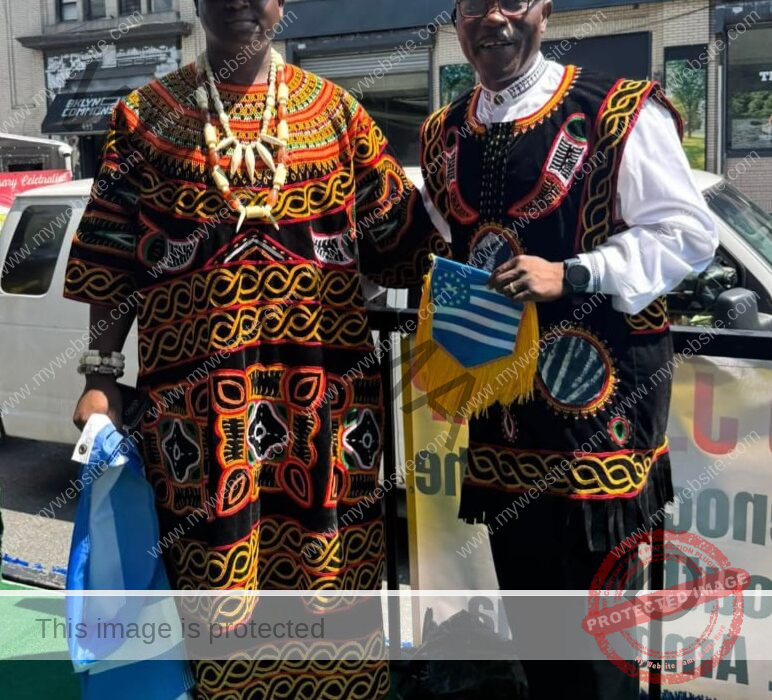Tita Emmanuel Nji and Victor Mbah on a quiet street in Brooklyn, New York.
By Timothy Enongene – The Independentist
A recent video circulating online shows Messrs. Tita Emmanuel Nji and Victor Mbah on a quiet street in Brooklyn, New York, speaking about Ambazonia. In the footage—about six minutes long—trucks are seen bearing Ambazonian banners as the two men share their message.
As an observer deeply committed to the Ambazonian cause, I found myself asking: What was the goal of this effort? Was it a form of street diplomacy, a show of solidarity, or a symbolic public engagement? While some may see it as a noble attempt at awareness, others may question its timing, presentation, and overall impact.
The street appeared largely empty, raising questions about visibility. If the intention was to attract onlookers or spark public discourse, the location and planning may not have supported those aims effectively. Mr. Tita’s attire, a cultural toghu paired with a baseball cap, also drew my attention—not because of aesthetics, but because presentation often matters in efforts to symbolize national identity on foreign soil.
Some supporters of the initiative have referred to it as “open diplomacy.” If that is the case, it is worth reflecting on what diplomacy entails. In most circumstances, effective diplomacy involves behind-the-scenes engagements, quiet negotiations, and strategic messaging aimed at decision-makers—not just public expressions. In the U.S., as elsewhere, lawmakers are more likely to respond to sustained policy engagement than isolated public events. That said, there’s room for both formal diplomacy and grassroots awareness, as long as they reinforce—rather than compete with—each other.
If the Brooklyn video was a genuine effort to amplify Ambazonia’s voice, then it should be welcomed as part of the broader civic space. Citizens have the right to contribute to the struggle in creative ways. However, if it was meant to challenge or discredit the diplomatic efforts of the Federal Government of Ambazonia, it may risk creating confusion and division at a time when unity is crucial.
There’s a long record of individuals attempting to substitute personal platforms for national coordination—sometimes with unintended consequences. We’ve seen this in the past. But we’ve also seen growth when different actors align their energy toward a common goal. Constructive criticism is vital, but so is clarity of intention. Collaboration builds; rivalry divides.
As things stand, the Government of the Federal Republic of Ambazonia continues to engage with international stakeholders quietly and consistently. Much of that work—by nature—cannot be broadcast. But it is work nonetheless. Let us not assume that what we don’t see is not being done.
More importantly, let us recognize that distraction is a tactic used by adversaries, and we must not assist it unknowingly. Yaoundé’s strategy has often relied on fragmenting our movement by elevating parallel voices. We must respond with discernment and maturity.
In closing, let all who love Ambazonia contribute meaningfully. Whether through diplomacy, public engagement, humanitarian work, or advocacy, the goal should be collective—not personal—progress. Let President Samuel Ikome Sako and the entire government team continue in the mission toward Buea, while welcoming all citizens who work in good faith for our shared future.
Timothy Enongene Atlantic Zone
Federal Republic of Ambazonia

